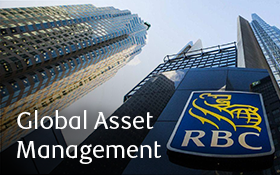We hope you enjoyed a happy and healthy long weekend!
In this week’s economic update, we are looking in detail at inflation in the Canadian, U.S. and global economies. We are also doing a deep dive into U.S. equity markets and the impact of large-cap technology on the U.S. markets. We would encourage you to check out the Global Insight Mid-Year Outlook, published by RBC Wealth Management, for more detailed analysis.
We are sharing the latest video from RBC Global Asset Management, where Chief Economist Eric Lascelles discusses the latest economic data from Canada and the U.S.
We are also highlighting our support for the GOOD Games in Guelph on July 7th and 8th – we hope to see you there!
Lastly, a friendly reminder that our Summer Hours are in effect. Please see the details below.
Economic Update
A notable recent development was the Canadian inflation report for May, which was higher than expected for the first time this year. This has moderately reduced expectations for a July rate cut, though markets still anticipate another one to two cuts from the Bank of Canada through the remainder of the year.
It's hard to believe, but we have reached the year’s midway point. This week, we take the opportunity to reflect on this year’s developments and share some thoughts on the outlook. We also want to highlight the Global Insight Mid-Year Outlook, published by some of the thought leaders across RBC. The special report on U.S. debt is particularly thought-provoking, though the whole piece is worth a read.
Inflation showing encouraging signs globally, ‘soft landing’ seen as more likely for many economies
There has been encouraging progress on inflation this year, albeit with different regions seeing different rates of decline. Yet, services inflation has remained sticky throughout most of the developed world thanks to wage growth, resilient demand, and shelter-related costs. Even so, fading pressures have allowed a few central banks to begin cutting rates, while others, like the U.S. Federal Reserve, suggest cuts remain a possibility later this year. On the growth front, things have been arguably better than anticipated, given many investors were expecting a recession to have already begun in various jurisdictions. The manufacturing sector has been generally weak, offset to a large degree by the services side of the economy. The consensus view is that a soft landing, where the economy slows but avoids a material deterioration in employment, is now more likely for many economies, particularly the U.S.
Large-cap technology continues to drive U.S. equity markets, but some things to consider
The backdrop above has driven global equity markets higher this year, with the U.S. leading the way. But, as has been the case for some time, U.S. gains have been heavily influenced by large-cap technology, and more specifically, anything related to artificial intelligence. This momentum may continue for some time, but a few things warrant attention.
The U.S. market has become more expensive over the past year. While valuations are more reasonable if one excludes the large “tech” stocks that have led markets, they still sit above historical averages. That may have bigger implications over the longer-term than it does for the rest of the year.
Meanwhile, our confidence in the sustainability of a bull market is usually highest when gains are driven by a broad range of stocks and sectors. But that hasn’t exactly been the case this year, though there is always the possibility that market leadership could broaden, or shift to other sectors. We don’t view investor sentiment as overly optimistic yet, which can often be the case near market peaks, but it is more positive than it was a year ago, suggesting there is growing risk of some investor complacency. Most importantly, the risk of recession remains above average based on various factors we monitor. As a result, we believe the range of possibilities for equities is wider than normal despite the market strength to date.
Summary
Outside the U.S., and “tech” in particular, equity markets sit at valuation levels that are more balanced, reflecting some of the economic headwinds that exist in parts of the world. On the fixed income front, yields remain attractive and continue to act as a stabilizer in the face of potential equity market volatility. We remain confident in our portfolio management approach, which is focused on maintaining an asset allocation that is aligned with your financial plan, rebalancing accordingly, and consistently reviewing all positions to assess quality and appropriateness.
Canadian economy: two steps forward, one step back?

There is progress on a number of fronts for the Canadian economy - but perhaps also some backward steps, including May’s inflation numbers.
In the latest #MacroMemo video, Eric Lascelles (Managing Director & Chief Economist for RBC Global Asset Management) discusses the state of the Canadian economy, economic data from the U.S., political developments from other parts of the globe, as well as some insight into the economic impacts of weight-loss drugs.
Watch the video by clicking here.
The GOOD Games in Guelph

Elinesky Schuett Private Wealth are proud to be supporting the GOOD Games this year. With a motto of “sport for all, sport for life,” The GOOD Games welcomes athletes aged 20+ and festival goers of all ages, skill levels, and backgrounds to participate in the festivities. Held on July 7th and 8th, the GOOD Games is Canada’s biggest festival of sport and fun for the whole family – we hope to see you there!
Summer Hours

A friendly reminder that Elinesky Schuett Private Wealth is recognizing summer work hours. Until September 6th, our office will be closing at 4pm on Fridays. Thank you for your understanding.
As always, we are available to connect with you personally. Please don’t hesitate to contact us at 519-822-2024 or elineskyschuett@rbc.com.
